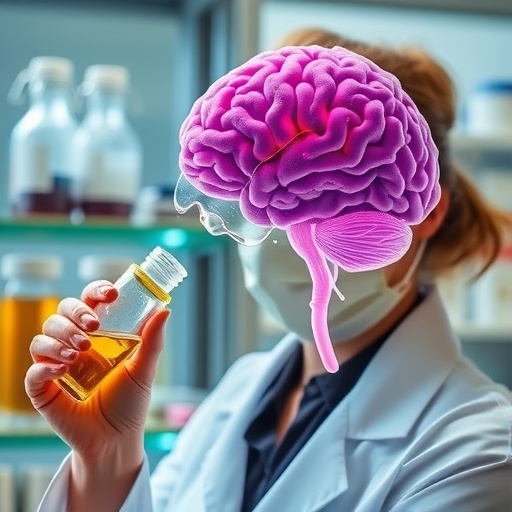In a groundbreaking discovery that could reshape our understanding of human nutrition and cellular biology, an international consortium of scientists has identified the elusive gene responsible for transporting queuosine, a micronutrient integral to numerous critical physiological processes. This collaborative effort, spearheaded by researchers at the University of Florida and Trinity College Dublin, culminated in a study published this week in the prestigious journal Proceedings of the National Academy of Sciences (PNAS), unraveling a decades-old biological enigma.
Queuosine, a lesser-known but vital vitamin-like molecule first identified in the 1970s, is critical for optimal human health. Unlike many essential nutrients, humans lack the metabolic pathways to synthesize queuosine internally. Instead, queuosine is acquired exclusively through dietary sources and the metabolic activities of gut microbiota. Despite its significance, the biochemical mechanisms governing its absorption at the cellular level remained a mystery until this recent breakthrough.
Central to this discovery is the gene SLC35F2, previously recognized in oncology circles as an oncogene and associated with the transport of cancer drugs and viral particles. However, its physiological role within healthy cells was poorly understood. The research team has now established that SLC35F2 functions with remarkable specificity to ferry queuosine and its precursor queuine into cells, enabling their incorporation into transfer RNA (tRNA) molecules that decode genetic information. This function is fundamental to protein synthesis and, by extension, to the regulation of myriad cellular activities.
Transfer RNAs are essential adaptors in the translation process, interpreting messenger RNA sequences to assemble amino acids into functional proteins. Queuosine’s modification of tRNA molecules fine-tunes this decoding process, enhancing fidelity and efficiency. Such modifications influence cellular responses from brain plasticity and memory formation to metabolic regulation and cancer suppression, revealing queuosine’s pervasive impact on human health at a molecular level.
Valérie de Crécy-Lagard, a distinguished professor of microbiology and cell science at the University of Florida and co-lead of the study, highlighted the significance of identifying the queuosine transporter. She remarked that despite over three decades of speculation, the transporter gene had evaded detection, underscoring the challenge posed by its subtle but vital biological role. “Finding SLC35F2 as the gatekeeper for queuosine ushers in a transformative era in understanding the interplay between diet, the microbiome, and gene translation,” de Crécy-Lagard explained.
The multidisciplinary team’s approach combined cutting-edge genomic screening techniques with functional assays to pinpoint the transporter’s identity. Their work went beyond model organisms, rigorously validating SLC35F2’s specificity for queuosine uptake in human cell lines. This precision emphasizes the gene’s evolutionary importance and its potential as a therapeutic target.
Vincent Kelly, professor at Trinity College Dublin and joint senior author of the study, emphasized the broader implications of this finding. “Queuosine’s influence extends to crucial physiological domains such as brain function, metabolic control, cancer biology, and stress resilience. Understanding the means by which queuosine navigates from the gut microbiome to every human cell redefines our view of micronutrient biology,” Kelly stated.
This discovery also sheds light on the intricate relationship between the gut microbiota and host cellular machinery. Given that queuosine is produced by gut bacteria and salvaged by host cells, the identification of SLC35F2 provides a molecular link elucidating how microbial metabolites directly influence human gene expression and function.
Cancer researchers, in particular, may find this insight invaluable. Since SLC35F2 has roles in mediating drug uptake, the newfound understanding of its physiological substrate opens pathways to designing therapies that leverage queuosine transport for targeted drug delivery or metabolic modulation in oncology.
The implications for neurological health are profound as well. Queuosine’s role in modifying tRNAs affects neuronal protein synthesis, with downstream effects on memorization and learning processes. Therapeutic avenues could emerge from modulating SLC35F2 activity or queuosine availability to combat neurodegenerative disorders or cognitive decline.
Funding for this extensive investigation was sourced from leading international health organizations, including the National Institutes of Health (NIH) in the United States, Research Ireland (formerly Science Foundation Ireland), and Health and Social Care in Northern Ireland. Such global collaboration underscores the universal relevance of queuosine biology and the importance of transnational scientific partnerships.
The research brings together an impressive array of institutions beyond the co-leading universities, involving San Diego State University and the Ohio State University alongside Irish academic centers. This synergy exemplifies the power of international cooperation to solve complex biological puzzles.
This seminal work concludes an era of speculation about queuosine transport and opens the floodgates for future research into its physiological roles and therapeutic potential. Researchers anticipate that uncovering the molecular underpinnings of queuosine uptake will catalyze new studies exploring diet, microbiome interactions, and gene regulation with unprecedented clarity.
In summary, the identification of SLC35F2 as the high-specificity transporter of queuosine marks a milestone in molecular biology. It connects nutrition, microbiome science, genetics, and medicine, promising not only to deepen scientific knowledge but also to inspire novel medical interventions aimed at harnessing the untapped potential of micronutrients in promoting human health.
Subject of Research: Identification of the gene SLC35F2 as the specific transporter for the micronutrients queuine and queuosine and its implications in human health.
Article Title: The oncogene SLC35F2 is a high-specificity transporter for the micronutrients queuine and queuosine
News Publication Date: 17-Jun-2025
Web References:
https://www.pnas.org/doi/10.1073/pnas.2425364122
http://dx.doi.org/10.1073/pnas.2425364122
Keywords: Gut microbiota, Bacterial DNA, Queuosine, SLC35F2, micronutrient transport, transfer RNA modification, gene translation, cancer suppression, brain function, microbiome, oncology, metabolism




